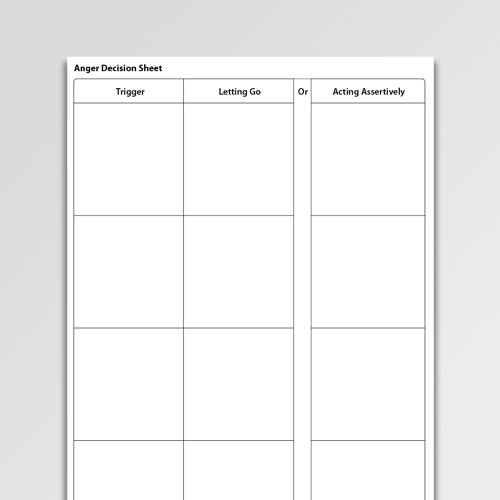Feb 11, 2021 admin February 11, 2021 February 11, 2021 No Comments on COPING STRATEGIES QUESTIONNAIRE CSQ PDF General description: The coping strategy questionnaire. (CSQ), (Rosenstiel & Keefe ) in its original version consists of 50 items assessing patient self rated. Coping strategies are used more frequently in both Sweden and USA, such Coping Strategies Inventory Free PDF ebooks (user's guide, manuals, sheets) about Coping strategies questionnaire ready for download The Coping Strategies Questionnaire (CSQ) (Rosenstiel and Keefe 1983) is the most widely used measure of pain coping strategies.

Since the start of the Hearing Voices Movement back in the 1980s, we have amassed a wealth of information resources that available for free on the internet. Some of these will be downloadable from this site (where we have permission from the authors to do this). Others will be linked to form this site.
Download Pain Coping Strategies Questionnaire Pdf Free Download
The Coping Strategies Questionnaire CSQ was developed in by Rosenstiel and Keefe 3 using a pool of items reflecting coping strategies frequently reported by patients and deemed to be important cq researchers and clinicians involved in the management qeustionnaire pain.
We are not responsible for the content of any resource created by an external agency. However, we will endeavour to only link to content that we feel will interest our membership. If you notice any content which you find worrying, please let us know so that we can review its place on this page.
For each subscale, the answers are summed and divided by the number of items for which a response was provided. The Coping Strategies Questionnaire CSQ was developed in by Rosenstiel and Keefe 3 using a pool of items reflecting coping strategies questiobnaire reported by patients and deemed to be important by researchers and clinicians involved in the management of pain. Free Online Library: The coping strategy questionnaire.(Appraisal: Critically Appraised Papers, Report) by 'Australian Journal of Physiotherapy'; Health, general Back pain Analysis Surveys Backache Life skills Management Osteoarthritis Care and treatment Patient outcomes Pain Methods Pain management Questionnaires Usage Rheumatoid factor.
Coping With Voices
Hearing Voices Coping Strategies
Manchester Hearing Voices GroupDownload Sheet
Positive Coping Strategies
The sheet lists suggestions for coping with the experiences of hearing voices, and seeing visions and having tactile sensations. It is hoped some of these ideas can help you, or someone you care about, towards living positively with these experiences and to maintain a sense of ownership over them.
Remember that you are not alone: Research shows that 4% of people hear voices, this is the same number as have asthma. Voice hearers throughout history have included a great many influential people: religious prophets, doctors and psychologists, philosophers, artists, poets, explorers and politicians. This list was compiled by the Manchester Hearing Voices Group.
Strategies for Coping with Distressing Voices
Hearing Voices Network Australia Download Sheet
A list of ideas for coping with difficult voices compiled by people who hear voices from the national network in Australia.
Whilst every person who hears voices is different, and finds different strategies useful, we hope this might give you some ideas to work with.
Better Sleep for Voice Hearers
York Hearing Voices Group Download Sleep Booklet
Many voice hearers report problems sleeping. Poor sleep can mean not being able to fall asleep in the first place, waking during the night, waking up too early or not feeling refreshed on waking.
It is common for voice hearers to report that their voices are worse at night, and that the night time means they cannot use their usual coping strategies such as going for a walk. People are also often alone at night, lacking distraction, and in trying to unwind for the night, their lack of occupation may bring on their voices.
This booklet, written by voice-hearers for voice-hearers, provides some tips and guidance on how people manage difficulties sleeping because of voices, visions or intrusive thoughts.
Young People
Voices & Visions #1: A straight talking introduction for parents and carers of children and young people who hear voices
Voice Collective, 2012 Download Booklet No. 1
A pdf booklet aimed at parents/supporters, but also suitable for anyone else who wants to understand a bit more about voices and visions. Includes an overview of the range of experiences people can have, how this can affect them and basic tips on how to speak with your child about them.
Voices & Visions #2: A guide to coping and recovery for parents and carers of children and young people who hear voices
Voice Collective, 2012 Download Booklet No. 2
A pdf booklet aimed at parents/supporters, but also suitable for anyone else who wants to understand more about how young people can learn to cope with difficult voices and visions. Includes a range of strategies, including finding safety, expressing yourself and taking the power back.
Useful Reports
Understanding Psychosis & Schizophrenia
British Psychological Society, 2014 (Updated 2017) Download BPS Report
Published by the British Psychological Society, this booklet presents “an overview of the current state of knowledge in the field, concluding that psychosis can be understood and treated in the same way as other psychological problems such as anxiety or shyness”.
Read more about the report here
Power Threat Meaning Framework
Published by the British Psychological Society, this document is an overview of the PTM framework. Drawing upon a variety of models, practices and philosophical traditions, its aim is to inform and expand existing approaches by offering a fundamentally different perspective on the origins, experience and expression of emotional distress and troubled or troubling behaviour. It is the result of a working group consisting of people with, and without, experience of psychiatric diagnosis.
Read more about the publication/project here